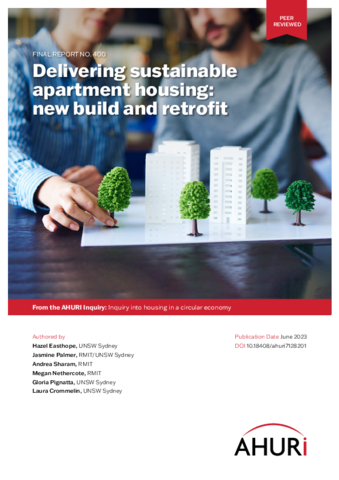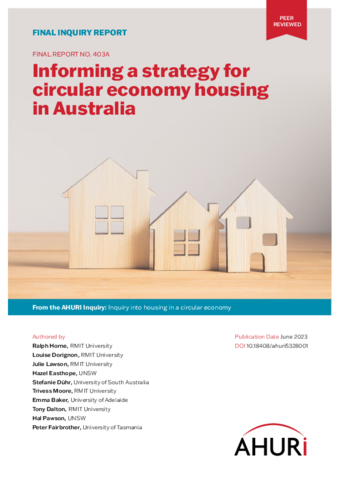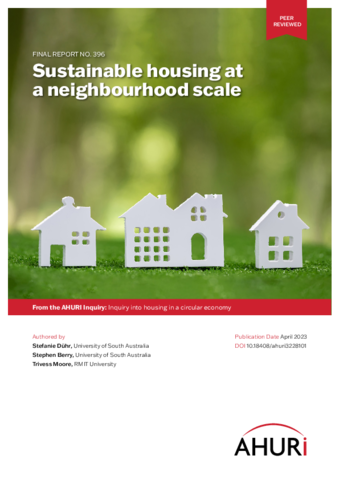From the AHURI Inquiry: Informing a strategy for circular economy housing in Australia
This study investigated the challenges and opportunities that built environment professionals in Australia experience when planning, designing, and implementing sustainable housing developments at the neighbourhood scale. It also examined strategies and policy levers employed in case study eco-neighbourhoods from across Australia and Europe to inform future Australian policy and practice.
Neighbourhoods are the ‘in-between scales’ between individual buildings and the urban scale and have been described as the ‘building blocks’ of a city. Planning for environments at a neighbourhood scale offers sustainability gains and economies of scale for decentralised systems (such as water and energy) and opportunities for integrated land-use and transport planning, biodiversity planning and social sustainability. Moreover, the neighbourhood scale allows consideration of the importance of communities and social capital for achieving sustainability.
The research found there is a need for stricter regulatory requirements on urban sustainability in general, and for policy frameworks and development models to support sustainable housing at a neighbourhood scale specifically. Policy expectations for sustainable neighbourhood developments should be performance-based, rather than prescriptive, and they should be supported by objectives and targets so that achievements can be measured and compared.
Many research participants called for mandatory targets, and for binding policies and regulation and sustainable housing and neighbourhood-scale developments to be coordinated across different levels of government and jurisdictions.






